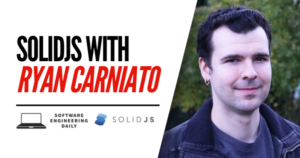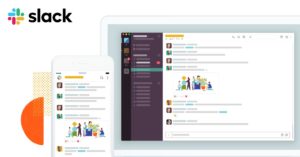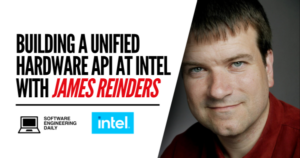DFINITY: The Internet Computer with Dominic Williams
Podcast: Play in new window | Download
Subscribe: RSS


If the Internet was reimagined with the software and hardware infrastructure we have today, what would it look like?
That is the question that DFINITY is working on answering. DFINITY’s goal is to build a decentralized, secure Internet computer. DFINITY takes concepts from the cryptocurrency world, but it is focused on computation, not financial products. DFINITY can be thought of as a decentralized cloud provider, with redundancy and scalability properties that are achieved by operating on data centers across the world.
DFINITY wants to host web applications such as the ones that we use today on centralized servers. A developer who wants to run their application on DFINITY compiles their code to WebAssembly and deploys it to the DFINITY decentralized runtime. Transactions across DFINITY applications are processed through a collateralized proof-of-stake system to ensure reliable, decentralized computation.
DFINITY is an ambitious project, and it would seem nearly impossible to bring to market if not for the quality of the team. DFINITY has hired Andreas Rossburg, a co-designer of WebAssembly, as well as talented engineers across security, web development, and backend infrastructure.
Dominic Williams is the president and chief scientist of DFINITY, and he joins the show to talk about the vision for DFINITY and the roadmap to making it a reality.
Sponsorship inquiries: sponsor@softwareengineeringdaily.com
Announcements
- We have partnered with SafeGraph for the SafeGraph Data Hackathon Challenge. We are giving away $4000 in cash prizes, as well as SE Daily and SafeGraph swag. SafeGraph is a geospatial data company which curates a dataset of more than 6 million points of interest. SafeGraph provides a high volume of location data–and you build apps and data science projects with that data. If you have been looking for a creative opportunity to explore large data sets with the potential to win $4000 in cash prizes, this is a great opportunity. The hackathon is hosted on FindCollabs. To enter, go to FindCollabs.com and sign up.
- If you are planning a hackathon, check out FindCollabs Hackathons. Whether you are running an internal hackathon for your company, or you are running an open hackathon so that users can try out your product, FindCollabs Hackathons are a tool for people to build projects and collaborate with each other. You can create your own hackathon at FindCollabs.com.
Transcript
Transcript provided by We Edit Podcasts. Software Engineering Daily listeners can go to weeditpodcasts.com/sed to get 20% off the first two months of audio editing and transcription services. Thanks to We Edit Podcasts for partnering with SE Daily. Please click here to view this show’s transcript.



















